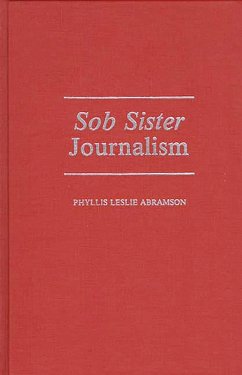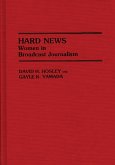On June 25, 1906 an event of little public importance occurred. Fueled by popular mood and climate, and capitalized upon by the press, it became the hottest story of the century. Phyllis Leslie Abramson's book recreates the social, political, and economic climate; the murder; and the subsequent trial that led to the manifestation of sob sister journalism. The story was prosaic: an insanely jealous man murdered his wife's lover. The protagonists were front-page material: Stanford White, famous architect and womanizer; Harry K. Thaw, scion of an influential family; and the young and beautiful Evelyn Nesbit. Three famous newspapers chose four women journalists to provide daily doses of tear-producing reportage. The sob sisters were born. Exploring the origins of sob sister journalism, Abramson first surveys turn-of-the-century America. She includes sections on industrialization, urbanization, immigration, the political climate, women, the press, and New York City, and gives biographical sketches of the four female journalists. The trial itself encompasses the main portion of her book. Day-by-day courtroom events alternate with the sob sisters' actual newspaper coverage. The volume concludes with an analysis of the development of sob sister journalism and the impact of this new journalistic style. An appendix offers a postscript on the lives of the protagonists and the sob sisters.









